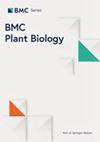Molasses-based waste water irrigation: a friend or foe for carrot (Daucus carota L.) growth, yield and nutritional quality
IF 4.3
2区 生物学
Q1 PLANT SCIENCES
引用次数: 0
Abstract
Management of molasses-based wastewater generated in yeast and sugar industries is a major environmental concern due to its high chemical oxygen demand and other recalcitrant substances. Several strategies have been used to reduce the inland discharge of wastewater but the results are not satisfactory due to high operating cost. However, reuse of molasses-based wastewater irrigation in agriculture has been a major interest nowadays to reduce the freshwater consumption. Thus, it is crucial to monitor the impacts of molasses-based waste water irrigation on growth, metabolism, yield and nutritional quality of crops for safer consumer’s health. In present study, carrot seeds of a local cultivar (T-29) were germinated on filter paper in Petri dishes under controlled conditions. The germinated seeds were then transplanted into pots and irrigated with three different treatments normal water (T0), diluted molasses-based wastewater (T1), and untreated molasses-based wastewater (T2), in six replicates. Results revealed that carrot irrigated with untreated molasses-based waste water had exhibited significant reductions in growth, yield, physiology, metabolism, and nutritional contents. Additionally, accumulation of Cd and Pb contents in carrot roots irrigated with untreated molasses-based waste water exceed the permissible limits suggested by WHO and their consumption may cause health risks. While, diluted molasses-based waste water irrigation positively enhanced the growth, yield of carrot plants without affecting the nutritional quality. This strategy is cost effective, appeared as most appropriate alternative mean to reduce the freshwater consumption in water deficit regions of the world.以糖蜜为基础的废水灌溉:胡萝卜(Daucus carota L.)生长、产量和营养质量的朋友还是敌人
由于酵母和制糖业产生的糖蜜废水具有较高的化学需氧量和其他难降解物质,因此其管理是一个重大的环境问题。为了减少废水的内陆排放,人们采用了多种策略,但由于运行成本高昂,效果并不理想。然而,为减少淡水消耗,将糖蜜废水回用于农业灌溉已成为当今人们关注的主要问题。因此,监测糖蜜废水灌溉对作物生长、新陈代谢、产量和营养质量的影响对保障消费者健康至关重要。在本研究中,在受控条件下,将当地栽培品种(T-29)的胡萝卜种子放在培养皿中的滤纸上发芽。然后将发芽的种子移栽到花盆中,用普通水(T0)、稀释糖蜜废水(T1)和未经处理的糖蜜废水(T2)三种不同的处理方法进行灌溉,共六次重复。结果表明,用未经处理的糖蜜废水灌溉的胡萝卜在生长、产量、生理机能、新陈代谢和营养成分等方面都有显著下降。此外,用未经处理的糖蜜废水灌溉的胡萝卜根中镉和铅含量的积累超过了世界卫生组织建议的允许限度,食用这些物质可能会对健康造成危害。而用稀释的糖蜜废水灌溉则能积极促进胡萝卜植株的生长和产量,且不会影响其营养质量。这一策略具有成本效益,是世界缺水地区减少淡水消耗的最合适的替代方法。
本文章由计算机程序翻译,如有差异,请以英文原文为准。
求助全文
约1分钟内获得全文
求助全文
来源期刊

BMC Plant Biology
生物-植物科学
CiteScore
8.40
自引率
3.80%
发文量
539
审稿时长
3.8 months
期刊介绍:
BMC Plant Biology is an open access, peer-reviewed journal that considers articles on all aspects of plant biology, including molecular, cellular, tissue, organ and whole organism research.
 求助内容:
求助内容: 应助结果提醒方式:
应助结果提醒方式:


